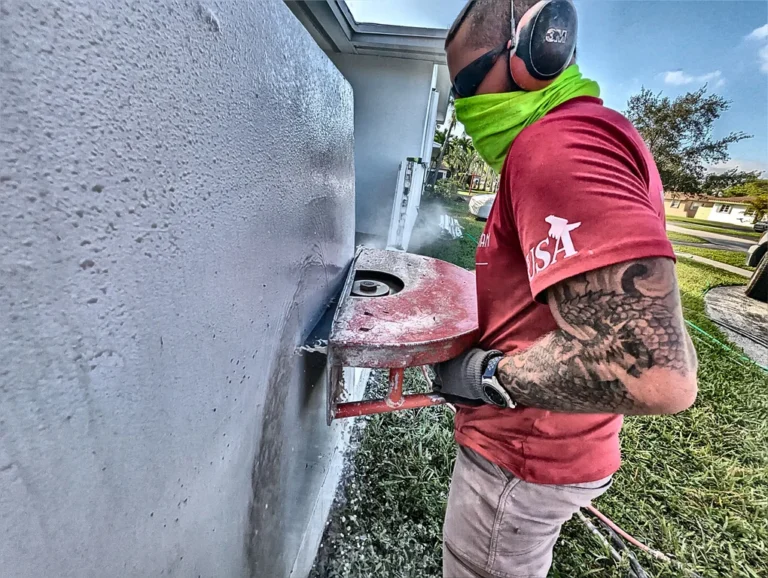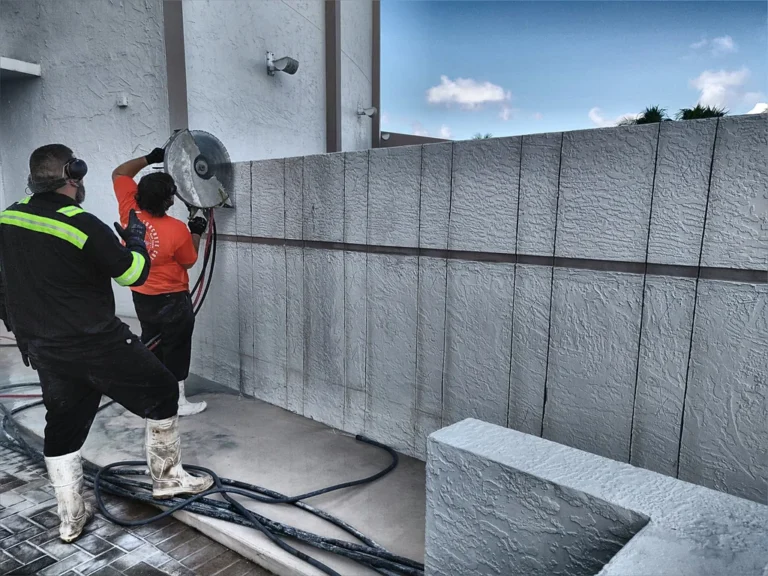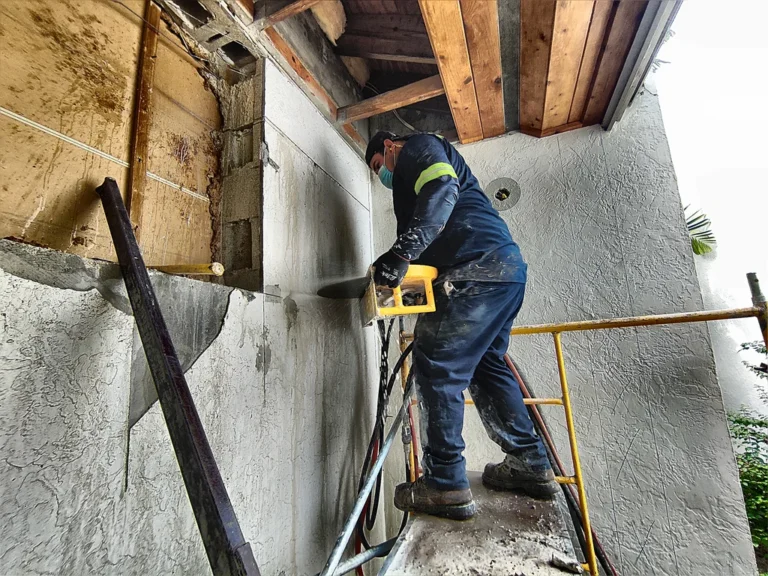Concrete cutting is a crucial step in many construction and renovation projects, especially when it comes to plumbing and drainage repairs. Whether you are a homeowner or a contractor, it is essential to understand the proper techniques and equipment for cutting concrete effectively.
In this article, we will provide a comprehensive guide on how to cut concrete for drainage or plumbing repairs. From preparing the surface to selecting the right tools, we will cover all the important aspects of concrete cutting.
Concrete is a durable and strong building material that is commonly used in construction. However, when it comes to plumbing and drainage repairs, cutting concrete can be a challenging task. Improper cutting techniques can result in damaging the concrete or the underlying pipes, which can lead to costly repairs and delays.
The good news is that with the right tools and techniques, cutting concrete for plumbing and drainage repairs can be a straightforward process. In this article, we will walk you through the step-by-step process of cutting concrete to repair your plumbing or drainage system.
Preparation
Before you start cutting concrete, you need to prepare the surface. This includes cleaning the area, marking the cutting line, and protecting adjacent surfaces and fixtures. Here are the steps to follow:
- Clean the surface: Remove any dirt, debris, or loose concrete from the area you will be cutting. This will ensure that you have a clean and level surface to work on.
- Mark the cutting line: Use a pencil or chalk to mark the cutting line on the concrete. This will serve as a guide for your cuts.
- Protect adjacent surfaces: Cover the surrounding surfaces and fixtures with plastic sheeting or drop cloths to protect them from dust and debris.
Selecting the Right Tools
There are several tools that you can use to cut concrete, including a concrete saw, an angle grinder, or a hand-held circular saw. However, the best tool for the job depends on the size and type of cut you need to make.
If you are making small cuts for plumbing or drainage repairs, an angle grinder or a hand-held circular saw may be sufficient. However, if you are making larger cuts, a concrete saw is the best option.
When selecting a concrete saw, there are several factors to consider, including the blade size, power source, and cutting depth. For example, if you are cutting through thick concrete, you will need a saw with a larger blade and more power.
Florida Keys drain job
Cutting the Concrete
Once you have prepared the surface and selected the right tools, you can start cutting the concrete. Here are the steps to follow:
- Put on protective gear: Before you start cutting, make sure you have the proper protective gear, including eye and ear protection, a dust mask, and gloves.
- Start the saw: Start the saw and let it run for a few seconds to make sure it is working properly.
- Make the cut: Begin cutting along the marked line, keeping the saw steady and level. Make sure to apply enough pressure to cut through the concrete, but not so much that you damage the blade or the underlying pipes.
- Finish the cut: Continue cutting until you reach the end of the marked line. Once you have finished cutting, turn off the saw and let it cool down.
Cleaning Up
After you have finished cutting the concrete, it’s time to clean up the area. This includes removing the protective gear, cleaning up the dust and debris, and disposing of the concrete waste.
Here are the steps to follow:
- Remove protective gear: Take off your protective gear and dispose of it properly.
- Clean up dust and debris: Use a broom and dustpan to clean up any dust and debris from the cutting area. You can also use a wet cloth to wipe down the surface and remove any remaining dust.
- Dispose of concrete waste: Place the concrete waste in a sturdy container and dispose of it according to local regulations.
Cutting concrete for plumbing or drainage repairs can be a challenging task, but with the right tools and techniques, it can be a straightforward process. By following the steps outlined in this article, you can ensure that your concrete cutting project is a success.
If you are in the Miami, Broward or Florida Keys areas and need professional concrete cutting services, contact Concrete Cutting Miami at 888 828.8646. Our experienced team can provide you with the quality and reliable services you need to get the job done right.
Don’t forget to follow us on social media for more tips and tricks on concrete cutting and construction. And be sure to visit our blog for more informative articles and resources.






